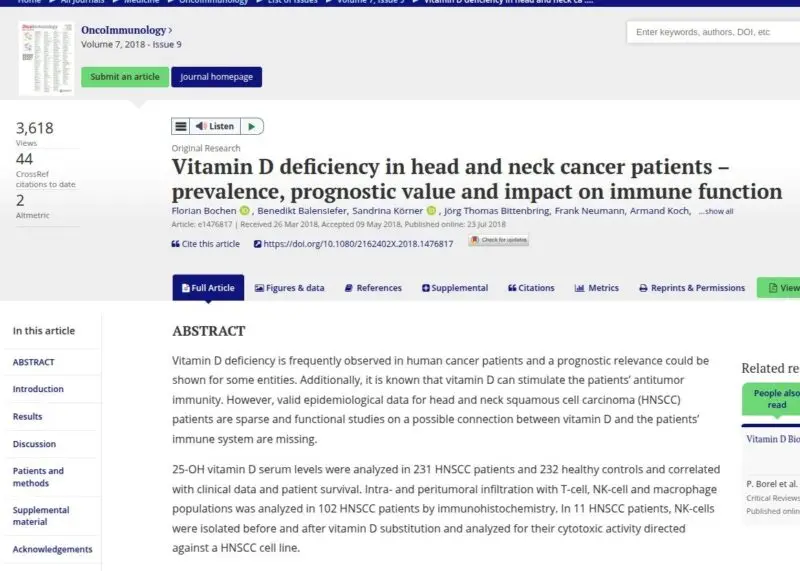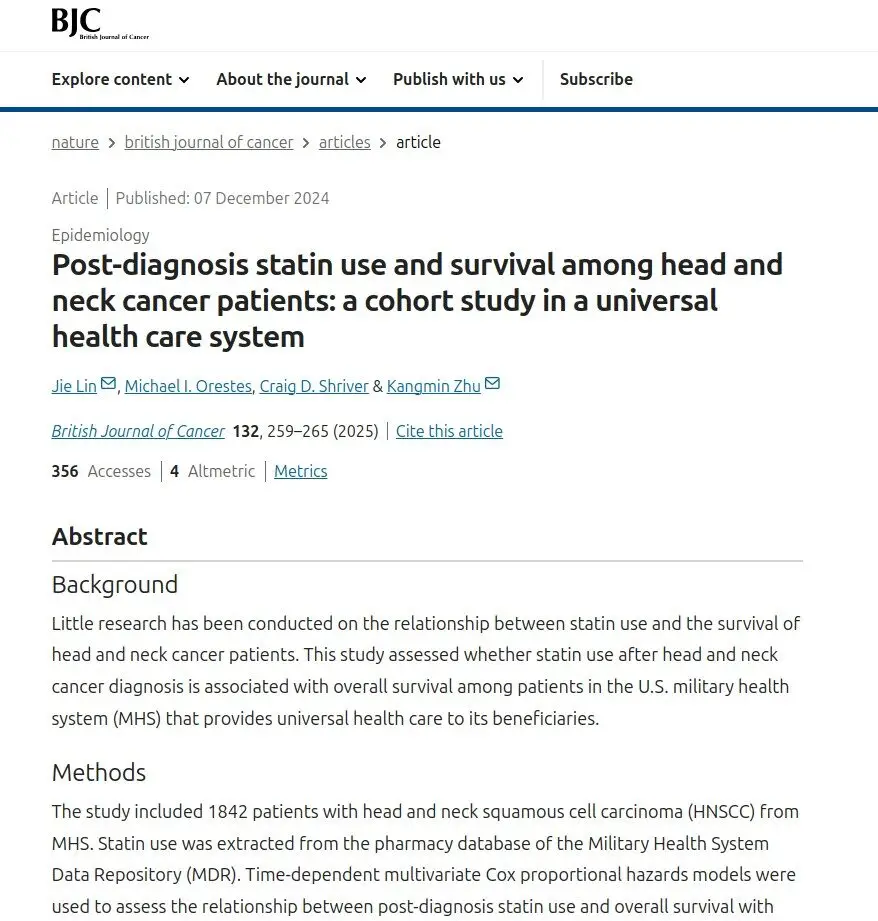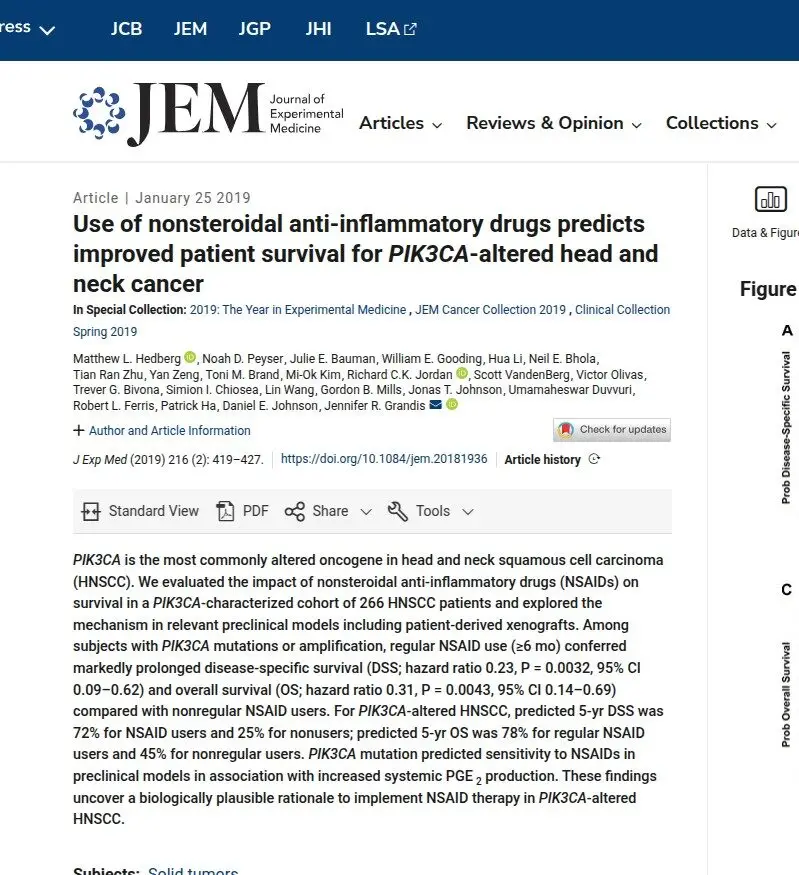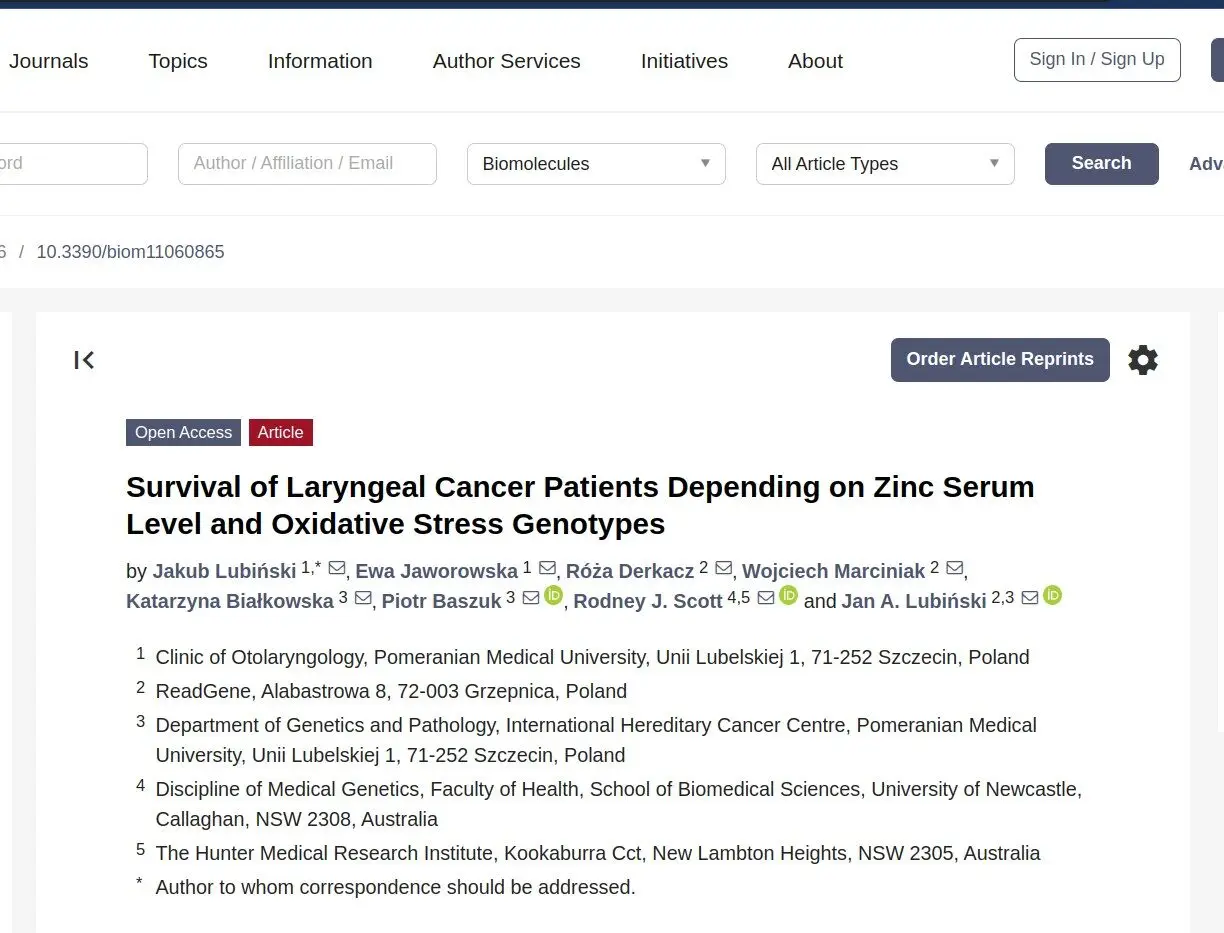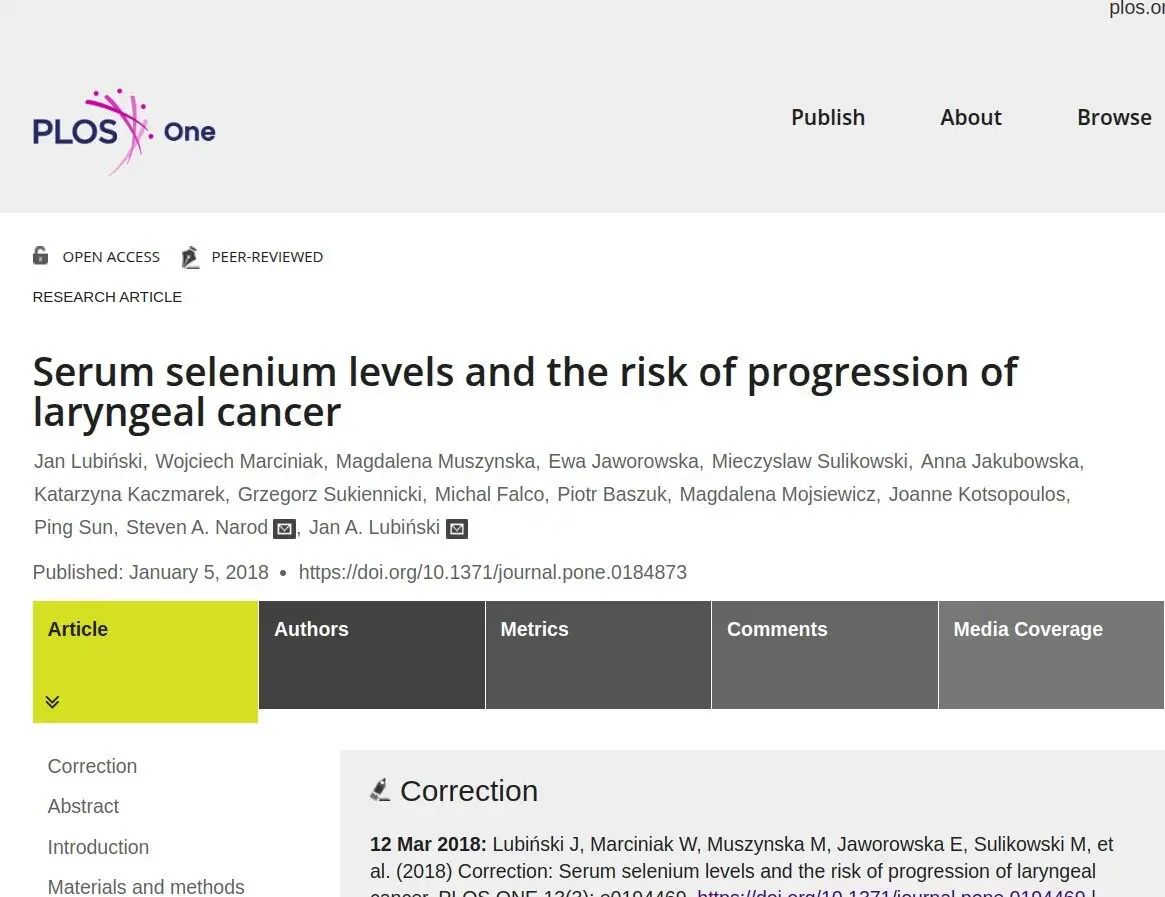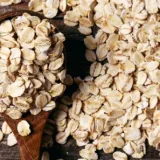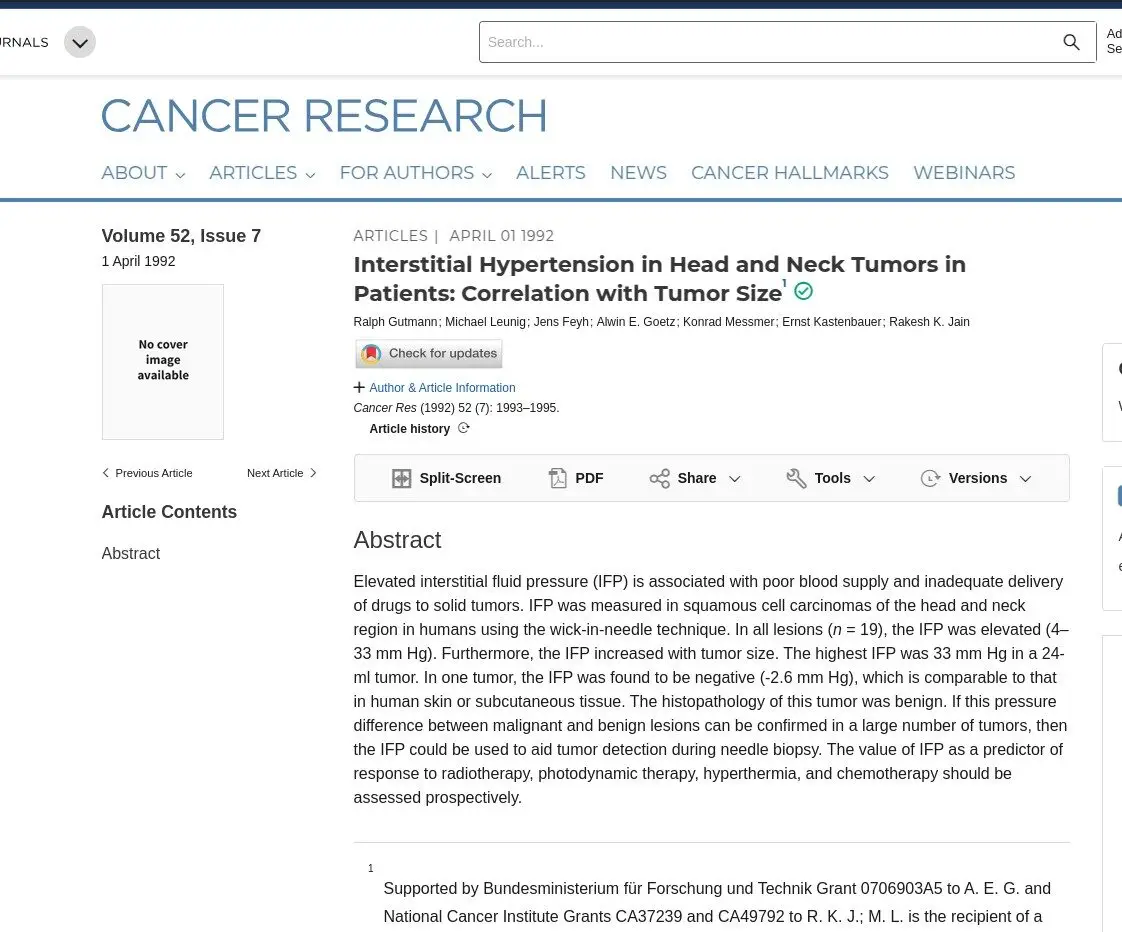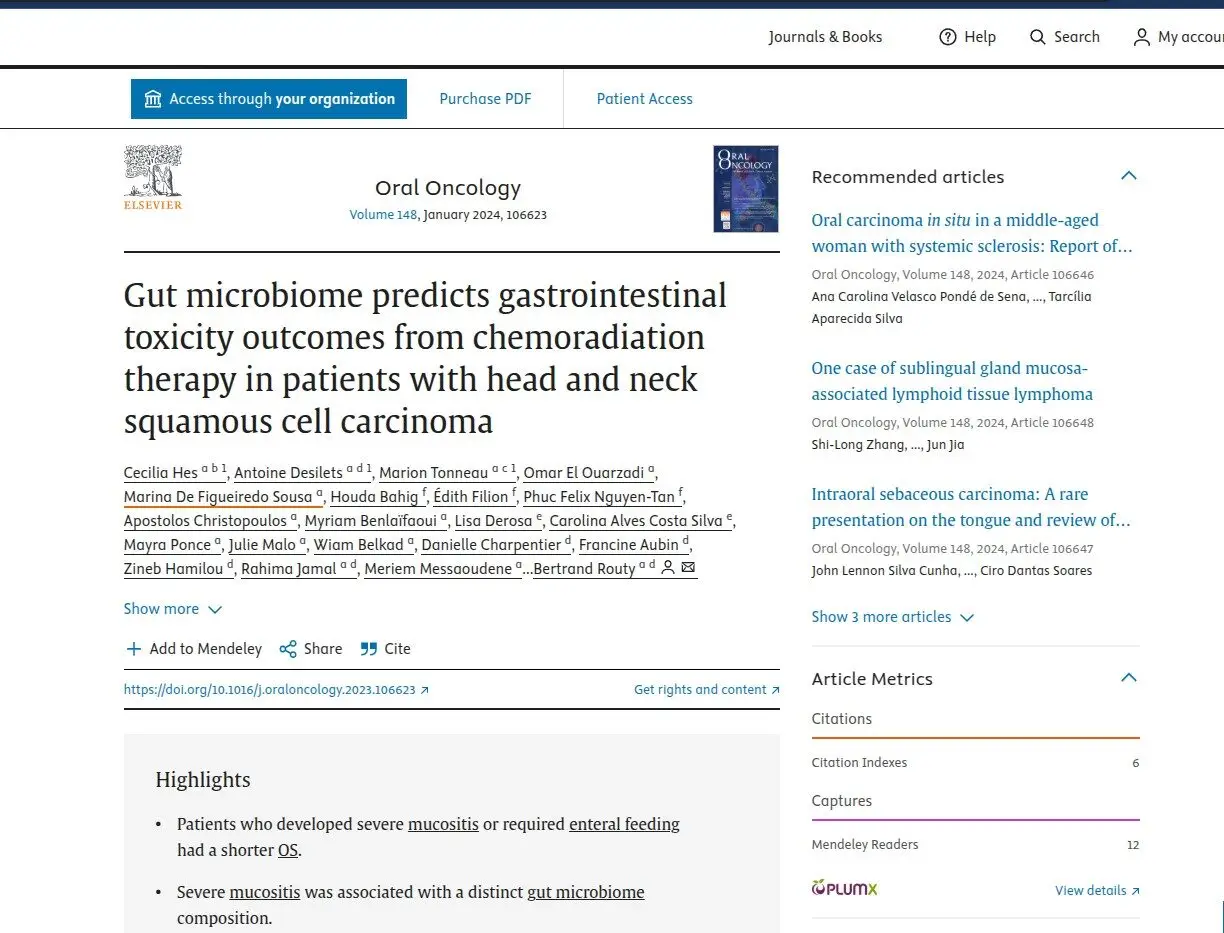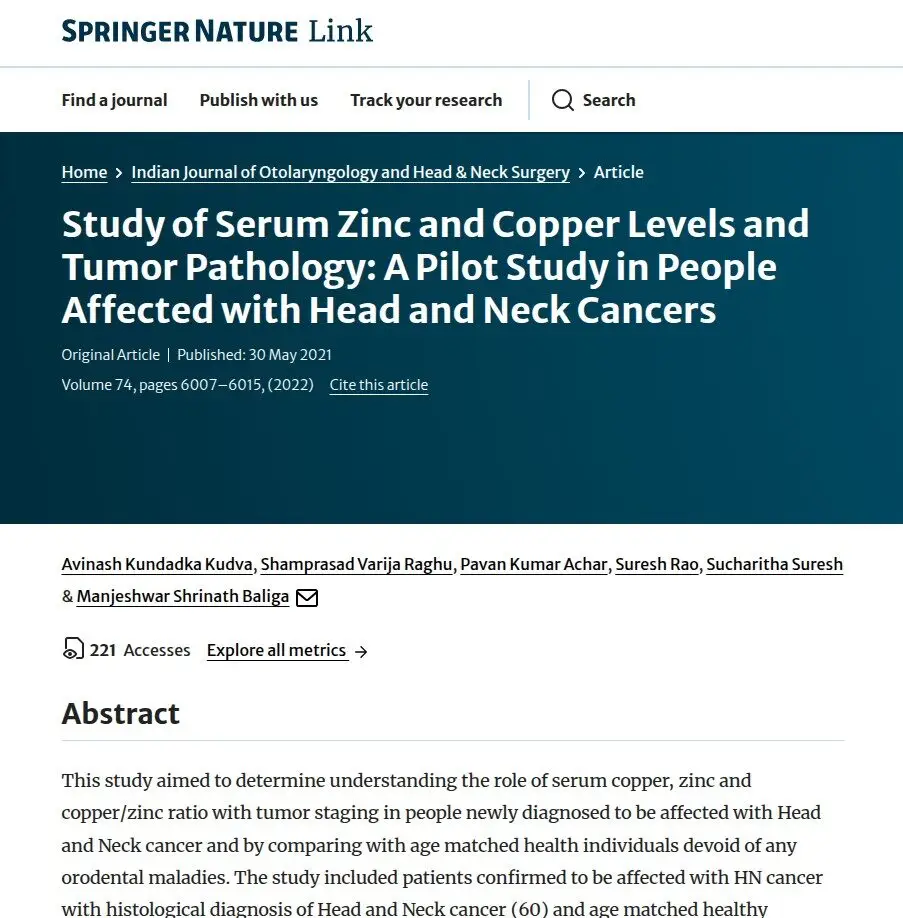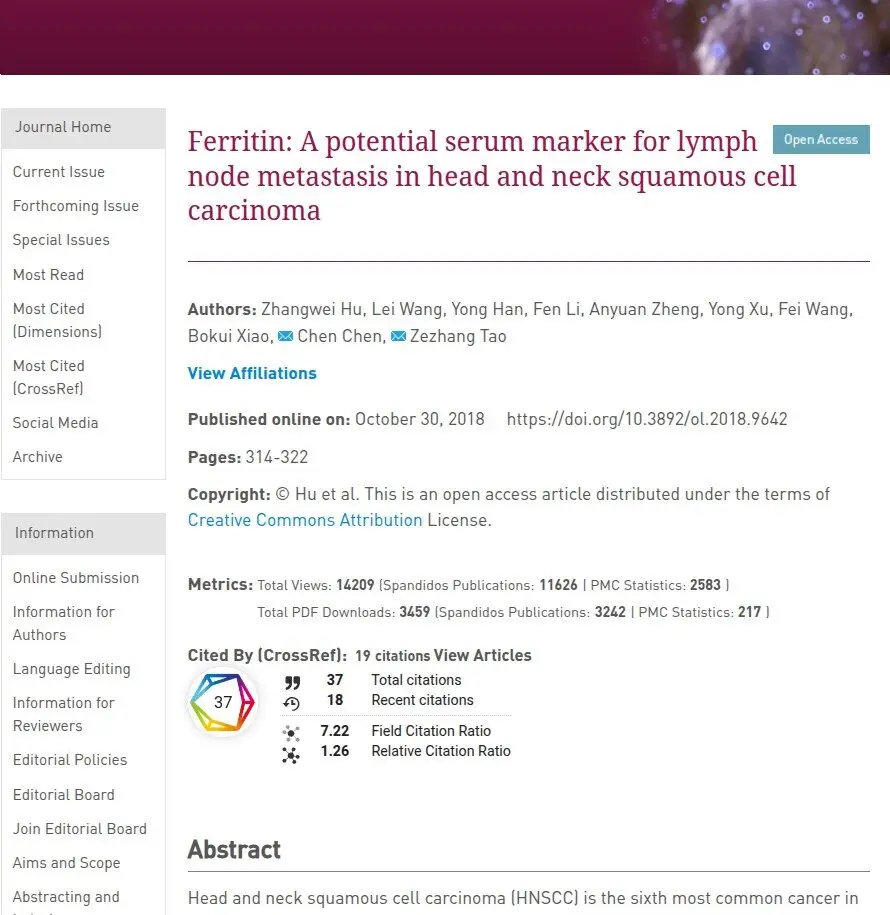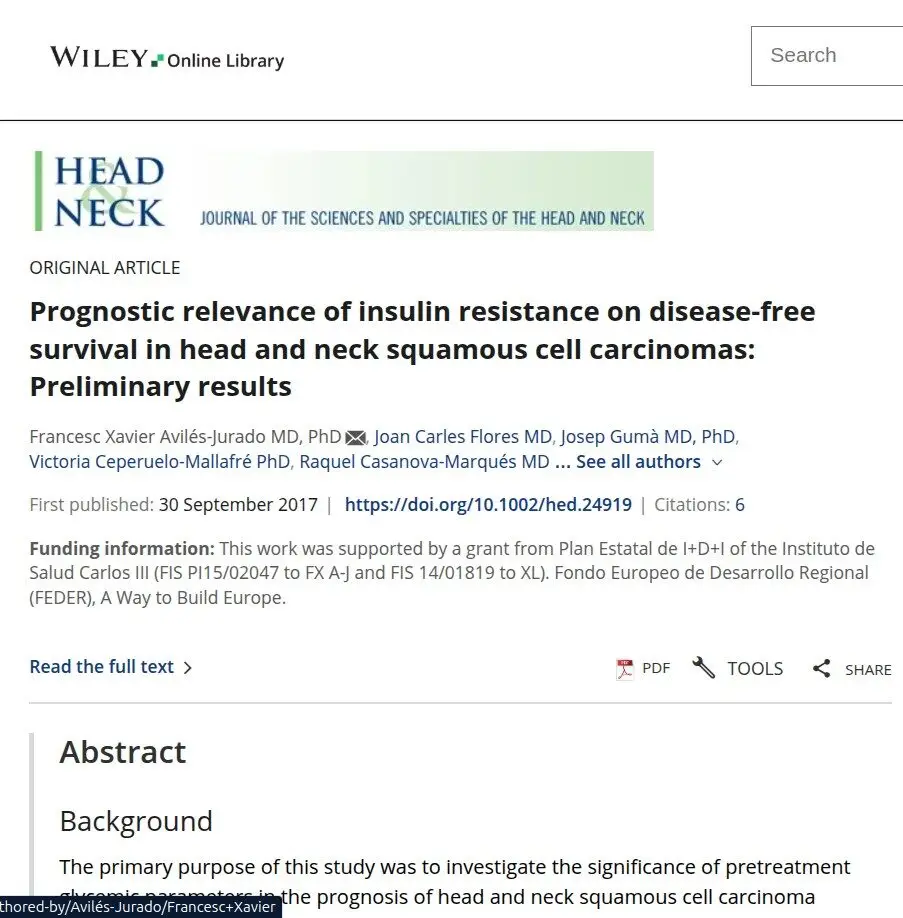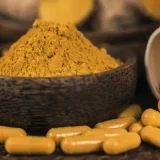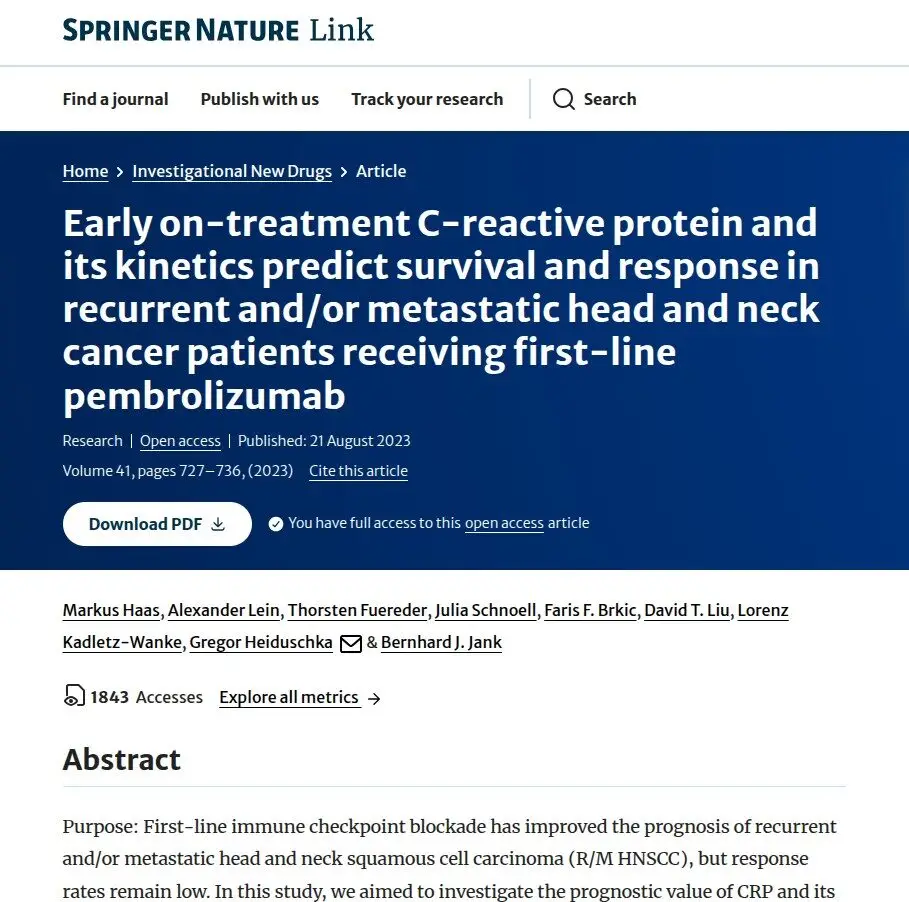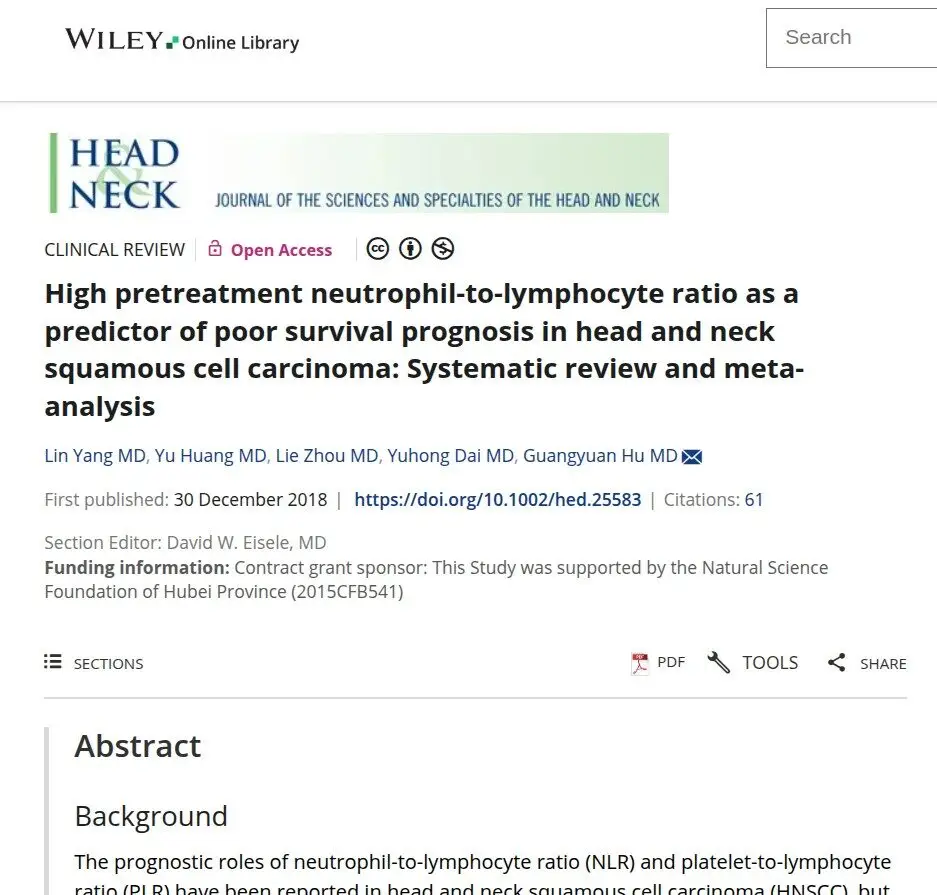Under ten percent of head and neck cancer patients have sufficient levels of vitamin D3 at diagnosis. Treatment responses and results are strongly linked to patients vitamin D3 levels. And based on compelling lab studies, most patients could benefit from supplements. Notably, HPV (common herpes viruses) positive tumors are more responsive to therapy, independent of vitamin D3, and have lower recurrence in the presence of the virus (the opposite to some other cancers). Many nutrients including D3 are constantly depleted by cancer activity including related inflammation as well as by many drugs, so supplements need to be able to constantly compensate this.
Use of statins during and after oncology therapies is gaining evidence in cancers including head and neck, both for benefits in treatment response and outcomes, as well as reduced risk of other events. Multiple studies based on patient data show significant benefit, and these are starting to be confirmed in clinical trials. Atorvastatin is the most well researched prescription drug. Red yeast rice is widely available and is the source of lovastatin, can can be an alternative. In other cancers, impacts of statins are clearest in patients that also see a major drop in LDL on their introduction.
About 35% of head and neck cancer patients are reported with a common dysregulated gene expression, so called PIKC3A . In this group, use of NSAIDs, most commonly low dose aspirin, results in substantial risk reductions. Both for progression and even for all cause risk. Most commonly this is low dose aspirin use. Similar findings have been confirmed recently for colorectal cancer patients with the same gene expression.
Higher levels of both selenium and zinc are seen in comparisons of patient data to drastically improve treatment outcomes. Correcting and sustaining levels of selenium in particular, with higher dose regimes, is now emerging as a new supporting treatment in areas such as kidney cancer management-
Equally remarkable impacts are linked with microbiome where certain families of gut bacteria strongly decrease risks for progression. These bacteria can in some instance be supplement but mainly are encouraged with functional foods and diet.
Systemic inflammation is linked with increased risks for progression, especially in later stages. Both acute type inflammatory responses measured by C-reactive protein, and immune system related neutrophil-to-lymphocyte ratios. Maintaining relatively lower levels of both make a substantial difference. Commonly used Astragalus root has evidence of improving immune system balance and NLR while curcumin and other other functional foods including garlic can help bring down CRP.
The so called Th1/Th2 immune system balance is strongly linked to the progression of head and neck cancers, including treatment resistance. Molecular Iodine solutions are emerging in this area in breast cancer management, and may support increased treatments responses in HNSCC in a similar way during chemo or immunotherapy ( see Supplement Library). For immunotherapy the presence of high sodium levels is now idenfied as a key marker for success in other cancers. And in other cancers, AM treatment programs are substanitally more effective that PM/evening sessions.
Certain nutrients from healthy diets have been reported to reduce progression risk by around a third. https://pmc.ncbi.nlm.nih.gov/articles/PMC4844799/, so called xanophylls, including lutein and zeaxanthin known for eye health as well as β-cryptoxanthin. Whilst at least the former are used extensively as supplements the study if focused on the benefits of healthy diet. And here, almost a report that higher omega3 and omega6 oils before therapy have significant benefit https://www.researchgate.net/publication/358657387



